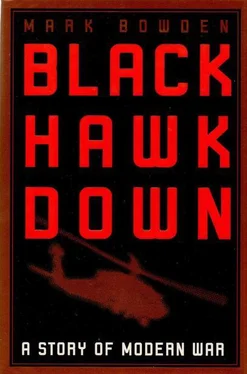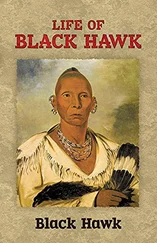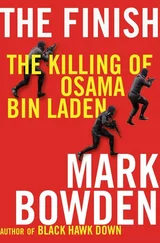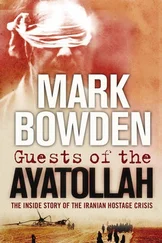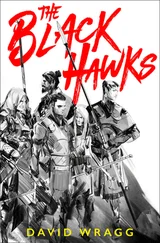Mark Bowden - Black Hawk Down
Здесь есть возможность читать онлайн «Mark Bowden - Black Hawk Down» весь текст электронной книги совершенно бесплатно (целиком полную версию без сокращений). В некоторых случаях можно слушать аудио, скачать через торрент в формате fb2 и присутствует краткое содержание. Город: New York, Год выпуска: 1999, ISBN: 1999, Издательство: Atlantic Monthly Press, Жанр: nonf_military, на английском языке. Описание произведения, (предисловие) а так же отзывы посетителей доступны на портале библиотеки ЛибКат.
- Название:Black Hawk Down
- Автор:
- Издательство:Atlantic Monthly Press
- Жанр:
- Год:1999
- Город:New York
- ISBN:978-0871137388
- Рейтинг книги:3 / 5. Голосов: 1
-
Избранное:Добавить в избранное
- Отзывы:
-
Ваша оценка:
- 60
- 1
- 2
- 3
- 4
- 5
Black Hawk Down: краткое содержание, описание и аннотация
Предлагаем к чтению аннотацию, описание, краткое содержание или предисловие (зависит от того, что написал сам автор книги «Black Hawk Down»). Если вы не нашли необходимую информацию о книге — напишите в комментариях, мы постараемся отыскать её.
Black Hawk Down — читать онлайн бесплатно полную книгу (весь текст) целиком
Ниже представлен текст книги, разбитый по страницам. Система сохранения места последней прочитанной страницы, позволяет с удобством читать онлайн бесплатно книгу «Black Hawk Down», без необходимости каждый раз заново искать на чём Вы остановились. Поставьте закладку, и сможете в любой момент перейти на страницу, на которой закончили чтение.
Интервал:
Закладка:
Then word came that Gary Gordon’s body had been recovered. But when proof came that Durant was alive and being held captive, Stephanie’s hopes soared. Surely they had Randy, too. They just weren’t showing him on camera. She prayed and prayed. She went to the funerals of the other soldiers, sat and grieved with the other wives. One day there were two funerals. Eventually all the missing men except Shughart had been accounted for. All were dead, their bodies horribly mutilated.
Stephanie asked her father to stay with her. Her friends took turns keeping her company. This went on for days. It was hell.
When she saw a car pull into her driveway with a priest inside, she knew.
“They’re here, Dad,” she said. “Randy’s body has been returned and identified.”
“Are you sure?” he asked.
She was sure. The military discouraged her from viewing Randy’s body—and, being a nurse, Stephanie knew why. She sent a friend to Dover, Del., where the body had been flown. When he came back, she asked: “Could you tell it was him?” He shook his head no.
“His body was intact,” he told her.
Randy and Stephanie had had the “death talk.” That’s what the boys called it. Randy told her he wanted to be buried at home in Newville, Pa. At the burial there was such a crush of photographers and reporters that she couldn’t spend a few quiet moments alone at the grave to say good-bye. Two of her friends from Commando had to escort her out of the ceremony to keep the press away.
Randy Shughart and Gary Gordon would be awarded the Medal of Honor.
MIKE DURANT’S FEAR of being executed or tortured eased after several days in captivity. After being at the center of that enraged mob on the day he crashed, he mostly feared being discovered by the Somalian public. It was a fear shared by Firimbi.
The “propaganda minister” had clearly grown fond of him. It was something Durant worked at, part of his survival training. The two men were together day and night for a week. Firimbi spoke Italian and Durant spoke some Spanish, languages similar enough for them to minimally communicate.
Firimbi considered Durant a prisoner of war. He believed that by treating the pilot humanely, he would improve the image of Somalis in America upon his release.
The pilot humored his jailer, asking him questions, indulging his whims. For instance, Firimbi loved his khat—the plant Somalis chewed as a stimulant. One day he handed cash to a guard and sent him to purchase more. When the man returned he began dividing the khat into three equal portions, one for himself, Firimbi and another guard.
“No,” Firimbi said. “Four.”
The guard looked at him quizzically. Firimbi gestured toward Durant. Durant quickly figured out what his jailer was up to. He nodded at the guard, indicating he wanted a cut of khat, too.
When the guard left, Firimbi scooped up the two piles for himself, winking at Durant and flashing an enormous grin.
Firimbi identified so strongly with the pilot that when Durant refused food, he refused food. When Durant couldn’t sleep because of his pain, Firimbi couldn’t sleep, either. He made Durant promise that when he was released he would tell how well-treated he had been. Durant said he would.
When the helicopters flew over at night, broadcasting, “Your friends are looking for you, Mike Durant,” Firimbi asked for a translation. After Durant told him what the words meant, Firimbi complained: “But we treat you so nicely!” A doctor had set Durant’s broken leg in a cast. At first he was fed stale MREs (Meals Ready to Eat). Then the woman who owned the house slaughtered a goat and offered him a meal of meat and spaghetti. Durant developed a bad case of diarrhea, which was uncomfortable and embarrassing.
Firimbi helped keep the bedridden pilot clean.
“What do you want?” he kept asking Durant.
“I want a plane ticket to the United States.”
“Do you want a radio?” Firimbi asked him.
“Sure,” Durant said, and he was given a small black plastic radio with a volume so low he had to hold it up to his ear. That radio became his lifeline. He could hear the BBC World Service, and reports about his captivity. It was powerfully reassuring to hear those English voices coming from his own world.
After five miserable days in captivity, Durant got visitors. Suddenly the room was cleaned and the bedsheets were changed. Firimbi cleaned him up, redressed his wounds, and gave him a clean shirt and a ma-awis, the wraparound skirt worn by Somalian men. Perfume was sprayed around the room.
Durant’s hopes soared. His first visitor was Suzanne Hofstadter, a Norwegian who worked for the International Red Cross. Durant took her hand and held on tight. All she had brought with her were forms with which he could write a letter. In the letter Durant described his injuries, told his family he was doing OK, and asked them to pray for the others. He still didn’t know the fate of his crew or Commando soldiers Shughart and Gordon, who had roped down to save him.
He wrote that he was craving a pizza. Then he asked Firimbi if he could write another letter to his buddies at the hangar, and his jailer said yes. He wrote that he was doing OK, and told them not to touch the bottle of Jack Daniels in his rucksack. Durant didn’t have much time to think. He was trying to convey in a lighthearted way that he was OK, to lessen their worry for him. At the bottom of this note he wrote, cryptically, “NSDQ.”
Later, Red Cross officials, concerned about violating their strict neutrality by passing along what might be a coded message, scratched out the initials.
After Hofstadter left, two reporters were ushered in: Briton Mark Huband of the Guardian and Stephen Smith from the French newspaper Liberation. Huband found the pilot lying flat on his back, bare-chested, obviously injured and in pain. Durant was still choked up from the session with Hofstadter. He had held her hand until the last moment, unwilling to see her leave.
Huband and Smith had brought a recorder. They told him he didn’t have to say anything. Huband felt great pity for Durant, and tried to reassure him.
Durant weighed talking to them. He finally agreed to discuss only the things that had happened to him since the crash. He wanted his family and his unit to know as much as possible about what had happened. He described the crash and his capture. Then Huband asked why the battle had happened, and why so many people had died. Durant said something he would later regret:
“Too many innocent people are getting killed. People are angry because they see civilians getting killed. I don’t think anyone who doesn’t live here can understand what is going wrong here. Americans mean well. We did try to help. Things have gone wrong.”
It was that “Things have gone wrong” line that haunted him after the reporters left. Who was he to pronounce a verdict on the American mission? He should have just said, “I’m a soldier and I do what I’m told.”
He grew depressed. He really did believe things had gone wrong, but he felt he had stepped over a line by saying it.
Durant rallied a day later when he heard his wife Lorrie’s voice on the BBC. She had made a statement to the press, which was carried on CNN as well. At the end Lorrie said loudly and firmly: “Like you always say, Mike, Night Stalkers Don’t Quit.”
This was actually not something Durant said often. It referred to the cryptic initials Durant had penned at the bottom of his note—still visible despite the Red Cross scratches. It was the motto of his unit, the 160th Special Operations Aviation Regiment. His message of defiance had gotten through.
WHEN ROBERT OAKLEY arrived in Mogadishu on Oct. 8, Aidid was still in hiding. He met instead with the warlord’s clan. He told the Habr Gidr leaders that the U.S. military operation against Aidid was over, and that Task Force Ranger’s original mission had ended. The Somalis were skeptical.
Читать дальшеИнтервал:
Закладка:
Похожие книги на «Black Hawk Down»
Представляем Вашему вниманию похожие книги на «Black Hawk Down» списком для выбора. Мы отобрали схожую по названию и смыслу литературу в надежде предоставить читателям больше вариантов отыскать новые, интересные, ещё непрочитанные произведения.
Обсуждение, отзывы о книге «Black Hawk Down» и просто собственные мнения читателей. Оставьте ваши комментарии, напишите, что Вы думаете о произведении, его смысле или главных героях. Укажите что конкретно понравилось, а что нет, и почему Вы так считаете.
